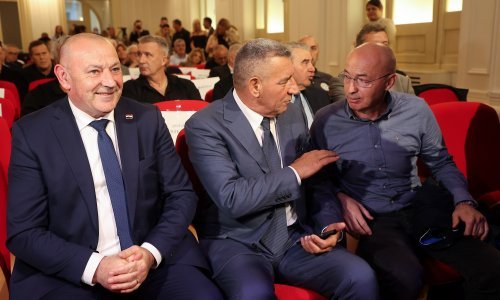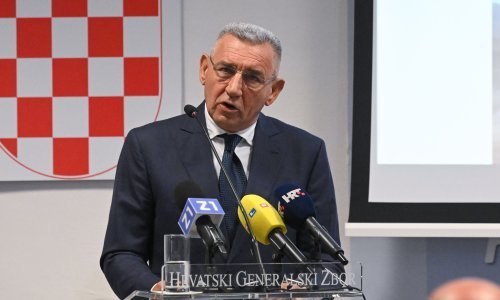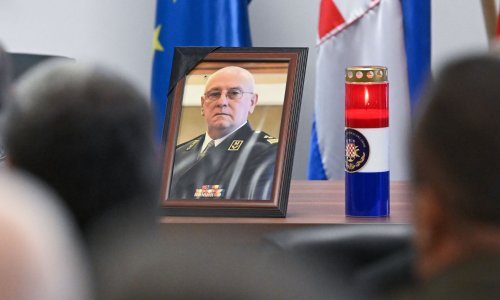Nineteen nongovernmental organisations on Wednesday issued a statement recalling some of the unprosecuted crimes committed during and in the wake of the 1995 Croatian army and police operation Storm and calling on Croatians to accept with calm and dignity the verdict in the Hague trial of Croatian generals Ante Gotovina, Ivan Cermak and Mladen Markac, to be announced on Friday, April 15.
Stressing that Operation Storm definitely crushed the rebellion of a part of the Croatian Serb population and the self-styled Republic of Serbian Krajina (RSK), the NGOs also recall the "dark" side of the operation, including arson, plunder and killing of civilians.
Quoting a survey by the Helsinki Human Rights Committee of Croatia, the NGOs say that more than 600 civilians were killed and more than 22,000 houses burned during and after the operation, and that - due to fear and at the urging of the rebel government - more than 150,000 Croatian citizens, mostly Serbs, left the country.
"Their return was difficult because of failure to provide for security and establish the rule of law in that part of Croatia's territory, because of delays in the prosecution of war crimes, ineffectiveness of refugee return programmes and the slow adoption by the government of economic measures designed to facilitate reconstruction. The synergy of all these factors resulted in the local Serb population on one-fifth of Croatia's territory leaving the country for good, with the extent of the process having the effect of ethnic cleansing," the NGOs said, recalling a dozen of cases of war crimes against dozens of civilians that have not been prosecuted yet.
"War crimes must be prosecuted consistently regardless of who is the perpetrator and who the victim because a crime, regardless of what prompted it, has no nationality or religion, only the traits of evil, and that is why it cannot be justified by anything, just like one cannot justify failure to prosecute it," the NGOs say.
They recall the obligation of the state to pay compensation to all victims and their families, warning that the victims' families who have sued the state, seeking damages, face the possibility of property seizure if they lose the case and are ordered to pay the litigation costs.
The NGOs also recall that Croatia strongly supported the establishment of the Hague war crimes tribunal for the former Yugoslavia and that it incorporated its statute into the national legislation, as well as that the tribunal's rulings are an integral part of its legislation and have to be respected.
At the end of the statement, the NGOs call for accepting the forthcoming ruling with calm and dignity, regardless of its content.
The statement was signed by the following NGOs: B.a.B.e, the Centre for Peace, Non-Violence and Human Rights, the Centre for Peace Studies, the Centre for Civic Initiatives, the Centre for Women War Victims, CERD, Delfin, Documenta, Domine, GONG, GOLJP, HOMO, the Youth for Human Rights Initiative, the House of Human Rights, the Rakun network for cultural cooperation and reconciliation, the Youth Network Croatia, the Nansen Centre for Dialogue, the Rehabilitation Centre for Stress and Trauma, the association of families "Against Oblivion", and by Drago Pilsel, Ljiljana Gherecke and Ana Kvesic.

































